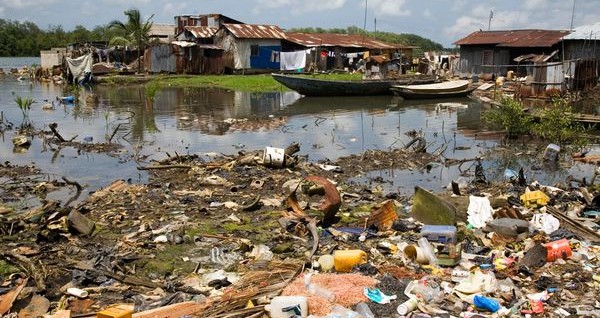By Jeph Ajobaju, Chief Copy Editor
Niger Delta residents say there is little to show for the $360 million the Nigerian National Petroleum Corporation (NNPC) claimed to have spent on cleaning up the region degraded by environmental pollution in 52 years of oil exploration.
NNPC and its joint venture partners “have disbursed $360 million towards the Ogoniland clean-up project,” NNPC Chief Operating Officer for Upstream, Roland Ewubare, told lawmakers during a presentation on February 17.
The NNPC partners are Shell Petroleum Development Company (SPDC), Total Exploration and Production of Nigeria (TEPNG), and Nigerian Agip Oil Company (NAOC).
According to Ewubare, the $360 million was out of a total $900 million recommended by the United Nations Environment Programme (UNEP).
NNPC and its partners were ready to fund the project as prescribed by the UNEP report, he added.
But a number of local residents questioned the impact of the operation
“What they are touting as a cleanup is substandard,” Christian Kpandei, a fish farmer whose land was polluted, said in an interview with Reuters.
Morris Alagoa, of the Environmental Rights Action (ERA) campaign group, said he had seen little activity since the operation began.
“I can’t say those handling the cleanup have actually started real work,” he stressed.
But a photograph seen by Reuters taken in the last few weeks in Bodo, which sits in Ogoniland, showed men wearing overalls and hard hats beside boats, suggesting some activity.
A spokesman for NNPC said the company and its partners merely distribute funds, which they have done.
Shell began Nigeria’s oil exploration in commercial quantity in 1958 and the liquid gold has since taken over agriculture as the mainstay of the economy, accounting for 90 per cent of foreign exchange receipts.
Exploration sites are located in several communities in the Deep South, among them Ogoni, whose residents’ traditional occupation is fish farming.
In 1993, Shell was forced out of Ogoniland by campaigners led by activist Ken Saro-Wiwa, after they said the oil company had destroyed their fishing environment.
Saro-Wiwa was later hanged by the military regime of Sani Abacha, prompting international outrage.
A 2011 United Nations report warned of catastrophic pollution in soil and water in Ogoniland. It said Shell and Nigeria’s government needed to address the problems.
In 2015, Shell accepted responsibility for operational faults that caused two spills in 2008.
Shell paid a settlement of £55 million to villagers and since then has said it has taken steps to improve the situation in the area, including training youths to start up businesses and funding community patrols to reduce pollution by vandals stealing oil.
A cleanup process launched in 2017 followed years of legal wrangling in the wake of oil spills.











